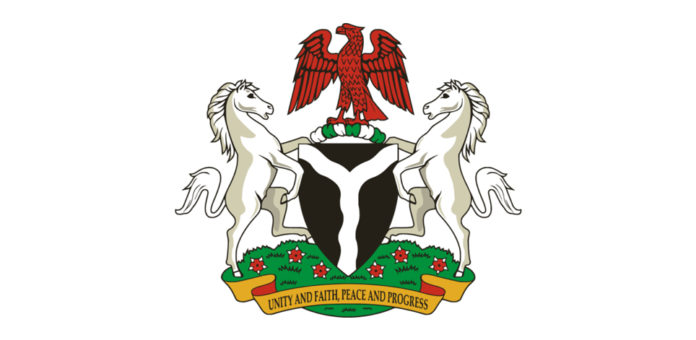The Honourable Attorney General of the Federation and Minister of Justice (HAGF) Lateef Fagbemi SAN, has declared that corruption was a formidable challenge to National Development Goals which undermined trust in public and private institutions, distorted resource allocation and incapacitated the ability of institutions to provide effective and efficient service delivery.
The HAGF stated this recently during the inauguration of the National Anti-Corruption Strategy (NACS) 2022 – 2026 Monitoring and Evaluation (M&E) Committee, which he maintained was a significant step under the National Anti-Corruption Strategy (NACS) and its Action Plan 2022 – 2026 for ensuring the institutionalization of accountability, transparency, and effectiveness in the public sector.
He reminded the nation that, Nigeria signed the United Nations Convention on Anti-Corruption on the 9th of December, 2003 and ratified same in 2004. Similarly, he also revealed that Nigeria adopted the ECOWAS Protocol on the fight against Corruption in 2001, and joined other Members States in adopting the African Union Convention on Preventing and Combating Corruption (AUCPCC) in July 2003.
“In addition to these, several laws and policies have been put in place in compliance with our obligations under the UNCAC, at both the Federal and State Levels in Nigeria. In particular, Nigeria has taken steps to strengthen the institutional framework of our various Anti-Corruption Agencies, and foster collaboration with the Inter-Agency Task Team (IATT), with the aim of tackling the growing incidence of corruption”. The HAGF enthused.
Fagbemi continued “further, in compliance with national and international obligations, the Federal Executive Council (FEC) in November, 2022, approved the extension of the National Anti-Corruption Strategy (NACS) for another four (4) years i.e. NACS 2022 – 2026. NACS as a Federal Government Policy is built on 5 pillars: Prevention of Corruption; Public Engagement; Campaign for Ethical Re-Orientation; Enforcement and Sanctions; and Recovery and Management of Proceeds of Crime”.
Fagbemi, emphasized that NACS recognized that while there was high global perception of the corruption problem in the country, there was however need for a contextual approach that would interrogate the problem with a view to designing home grown interventions as much as possible.
“One of the interventions that is necessary for achieving significant results in the fight against corruption is the development of effective monitoring and evaluation mechanisms. This ensures that government and organizations are more responsive to demands from internal and external stakeholders for good governance, accountability, transparency and greater efficiency and effectiveness. As demands for greater accountability in governance continues to grow, there is an accompanying need for useful and useable results-based monitoring and evaluation systems to support the management of policies, programs, and projects to address corruption in Nigeria”. The HAGF highlighted.
He pointed out that the overall objective of the M & E system was to strengthen public sector efficiency, effectiveness, accountability and transparency, with a view to enhancing service-delivery and ultimately contributing to the achievement of national goals.
According to the HAGF, “the NACS and its action plan 2022-2026 include several milestones outlining steps to consolidate the implementation of NACS. These include timeous and accurate release of reports on the status of implementation of the strategy and the number of corruption cases prosecuted. The work of the (M & E) Committee is therefore vital to conducting corruption risk assessments, setting up integrity mechanisms, and encouraging public awareness”.
The terms of reference of the NACS Monitoring and Evaluation Committee (M & E) Secretariat included to: Develop the M&E template including the assessment criteria, Prepare the budget for execution of (M & E) programmes, Advocate for the inclusion in MDA Budgets resources for the implementation of MDA specific activities specified in the NACS, Conduct quarterly monitoring visits to MDAs or as the need arises, Conduct annual review of the progress of the implementation of NACS and submit its reports to the NACS Ministerial Committee through the NACS Secretariat by the 30th of January of each year and Provide quarterly updates based on monthly self-assessments and quarterly reports of MDAs.
Others were Collate and analyse reports, produce annual monitoring and evaluation reports, prepare evaluation report on the implementation of NACS, provide feedback, periodic training and hands on support to the MDAs as the need arises, facilitate and coordinate activities of the Committee and additionally receive and disseminate outputs of the Committee, keep records and provide logistics and other support during meetings and trainings and shall meet every quarter and as the need arises.
Fagbemi urged all inaugurated members to be committed to the roles and functions of the Committee as well as the vision and mission of the National Anti-Corruption Strategy (NACS), stating that collectively, Nigerians could build a future where integrity and accountability were the norm; where justice would be served, where the threat of corruption and its debilitating effects would be minimized.
The membership of the (M & E) Committee comprised of representatives of key Ministries Departments and Agencies (MDAs) and Civil Society Organizations (CSOs).
Signed
Aderemi Ajibola ADELABU
ACI & PRO
For: Director (Information & Public Relations)






